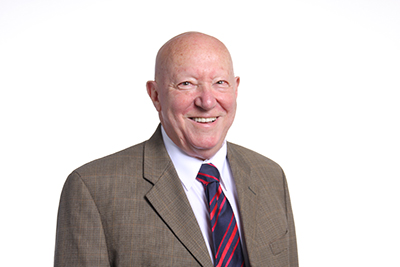It’s often said of a venerable employee that it’s “impossible to imagine the place without them.” There are very few people such a sentiment applies to more than Dr. Neil Schneiderman, an expert in tackling health disparities. A fixture at the University of Miami since 1965, Schneiderman’s role in establishing and building the University’s psychology department has been foundational.
 “I am sometimes asked what kept me at Miami for so long,” Dr. Schneiderman says. “My answer is in part ‘good luck.’ I had the good fortune to come to Miami when both the department and University were making a commitment to healthy growth, and there was the opportunity to grow with the University.”
“I am sometimes asked what kept me at Miami for so long,” Dr. Schneiderman says. “My answer is in part ‘good luck.’ I had the good fortune to come to Miami when both the department and University were making a commitment to healthy growth, and there was the opportunity to grow with the University.”
Schneiderman has certainly made the most of that opportunity throughout his long career. His work with hands-on research, publications and grant-writing helped establish the University of Miami as a nationwide leader in the budding field of behavioral medicine – studying the relationships between behavior, health, and disease. He was uniquely qualified to take a lead role in the field.
“What Neil brought to the table was that he’d studied the basic science behind the brain and behavior,” says Dr. Phil McCabe, psychology department chairman. “He’d done work on the mechanisms of learning and memory and how they applied to health and disease.”
Schneiderman made some of his longest-lasting marks in landing funding for a wide range of initiatives studying the behavioral aspects of cardiovascular disease, cancer, diabetes, strokes, HIV/AIDS, and other conditions.
An expert grant-writer, he has attracted more than $125 million in federal research funding to the University over the years, with most of the money coming from the National Institutes of Health and National Science Foundation. These haven’t been short-term, one-and-done quick hits, either. A grant he earned in 1979 to train graduate students and post-doctoral fellows is still ongoing and funded more than four decades later.
“He’s been extraordinarily successful at attracting extramural funding,” says McCabe. “He’s 85 but like the Energizer Bunny, just keeps going. A lot of us owe our careers to Neil. He’s in the fourth quarter now but still amazingly active.”
One piece of his continuing research is the Hispanic Community Health Study, funded by the NIH to monitor the health of 16,000 Hispanic and Latino Americans in Miami, San Diego, Chicago, and the Bronx. A decade and a half of research has produced a huge database, fueling 14 ancillary studies from various data subsets. That has led to more than 100 published papers with more to come.
Schneiderman’s publishing career goes back to 1962 and his first-authored article in the journal Science. Since then, he has published more than 450 refereed scientific journal articles as well as 18 books and monographs. His many awards and honors include his 1989 appointment as James L. Knight Professor of Psychology, a 2016 lifetime achievement award from the Academy of Behavioral Medicine Research, and is also one of the recipients of the Provost's Award for Scholarly Activity this year (2021-22).
“While I have had numerous opportunities to move on to other institutions, I am grateful for the opportunities the ‘U’ has offered me,” he says. “I am also very pleased I was able to get in ‘on the ground floor’ of helping to build the field that has grown to be health psychology and behavioral medicine.”

